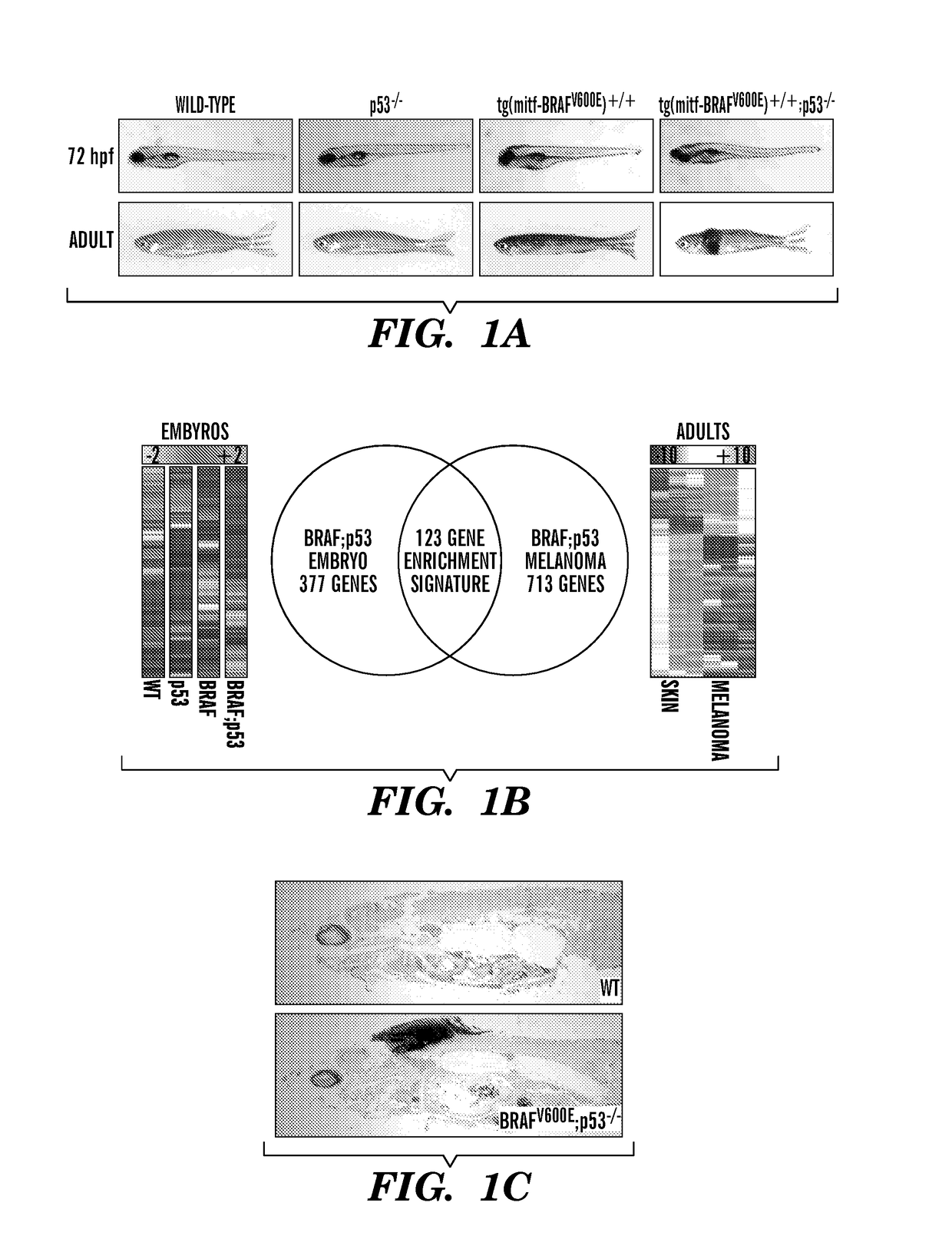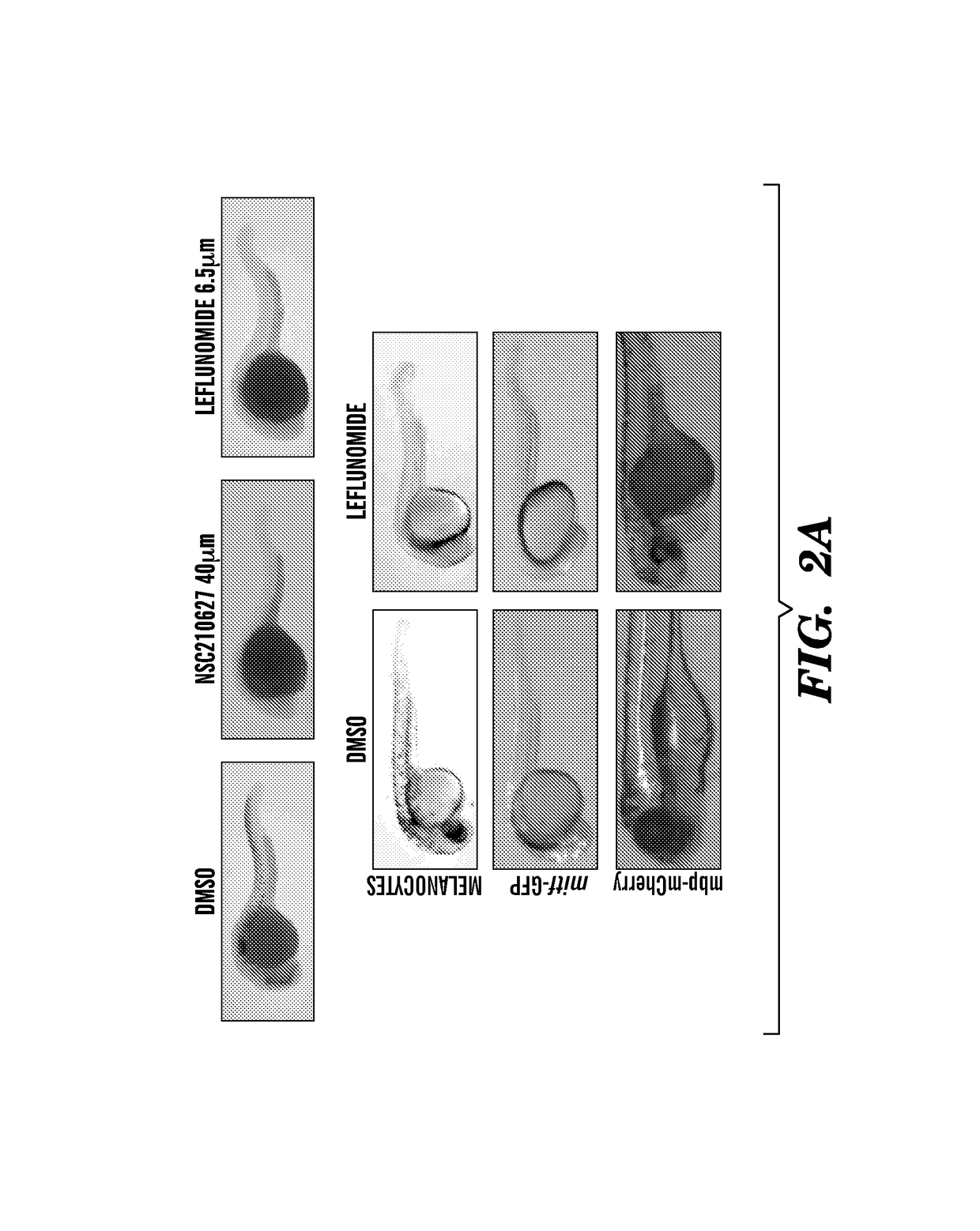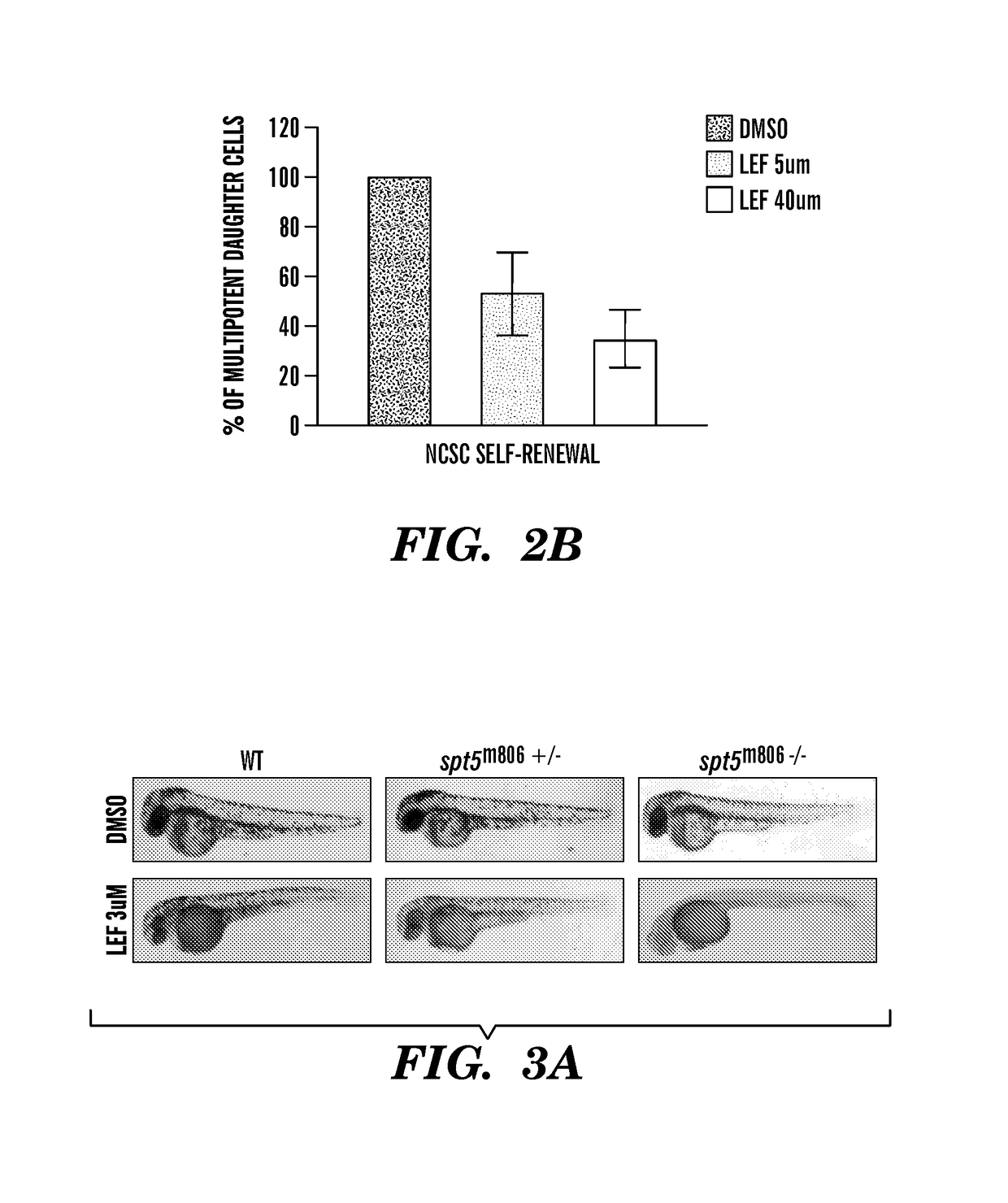Methods for treatment of melanoma
a technology for melanoma and treatment methods, applied in the field of treatment methods for melanoma, can solve the problems of limited treatment options for melanoma, unfavorable side effects, and resistance, and achieve the effect of convenient treatmen
- Summary
- Abstract
- Description
- Claims
- Application Information
AI Technical Summary
Benefits of technology
Problems solved by technology
Method used
Image
Examples
example i
[0193]In melanoma, it is unknown to what extent BRAFV600E mutations depend upon transcriptional programs present in the developmental lineage of tumor initiation. These programs may be therapeutic targets when combined with BRAFV600E inhibition. We have utilized zebrafish embryos to identify small molecule suppressors of neural crest progenitors which give rise to melanoma. Transgenic zebrafish expressing human BRAFV600E under the melanocyte-specific mitf promoter (mitf-BRAFV600E) develop melanoma at 4-12 months of age when crossed with p53− / − mutants (FIG. 1a). As the mitf promoter drives BRAFV600E starting at 16 hours post fertilization (hpf), overlapping with other markers such as sox10, events that occur early in embryogenesis are analogous to those occurring at tumor initiation. To gain insight into initiating events, we compared gene expression profiles of BRAFV600E;p53− / − embryos to BRAFV600E;p53− / − melanomas using Gene Set Enrichment Analysis (GSEA) (FIG. 1b). This revealed ...
example references
[0262]1. Davies, H. et al. Mutations of the BRAF gene in human cancer. Nature 417, 949-954 (2002).[0263]2. Rubinstein, A. L., Lee, D., Luo, R., Henion, P. D. & Halpern, M. E. Genes dependent on zebrafish cyclops function identified by AFLP differential gene expression screen. Genesis. 26, 86-97 (2000).[0264]3. Luo, R., An, M., Arduini, B. L. & Henion, P. D. Specific pan-neural crest expression of zebrafish Crestin throughout embryonic development. Dev. Dyn. 220, 169-174 (2001).[0265]4. Bakos, R. M. et al. Nestin and SOX9 and SOX10 transcription factors are coexpressed in melanoma. Exp. Dermatol. 19, e89-94 (2010).[0266]5. Boiko, A. D. et al. Human melanoma-initiating cells express neural crest nerve growth factor receptor CD271. Nature 466, 133-137 (2010).[0267]6.[0268]7. McLean, J. E., Neidhardt, E. A., Grossman, T. H. & Hedstrom, L. Multiple inhibitor analysis of the brequinar and leflunomide binding sites on human dihydroorotate dehydrogenase. Biochemistry 40, 2194-2200 (2001).[0...
example ii
[0300]Example guidance for a Phase II trial to test the efficacy of a combination therapy of the combination therapy of BRAF inhibitor PLX4032 and leflunomide.
[0301]We have found Leflunomide to block neural crest cell fate by inhibiting transcriptional elongation, wherein a reduced number of neural crest progenitors leading to a decrease in the number of differentiated melanocyte cells unexpectedly indicated that the compound is capable of inhibiting melanoma. The targets of these events include c-myc and mitf (FIG. 9, FIG. 13) directed genes. Prior to this finding, it was not obvious and was unexpected that Leflunomide could be utilized in therapies to treat melanoma given its previous use as an anti-arthritic agent predicated on its ability to target lymphocytes (See e.g., Fox et al., (1999) Mechanism of Action for Leflunomide in Rhuematoid Arthritis, Clinical immunology 93(3): 198-208). Non-lymphocytes were previously believed to be unaffected because of their ability to meet the...
PUM
| Property | Measurement | Unit |
|---|---|---|
| thickness | aaaaa | aaaaa |
| diameter | aaaaa | aaaaa |
| volume | aaaaa | aaaaa |
Abstract
Description
Claims
Application Information
 Login to View More
Login to View More - R&D
- Intellectual Property
- Life Sciences
- Materials
- Tech Scout
- Unparalleled Data Quality
- Higher Quality Content
- 60% Fewer Hallucinations
Browse by: Latest US Patents, China's latest patents, Technical Efficacy Thesaurus, Application Domain, Technology Topic, Popular Technical Reports.
© 2025 PatSnap. All rights reserved.Legal|Privacy policy|Modern Slavery Act Transparency Statement|Sitemap|About US| Contact US: help@patsnap.com



